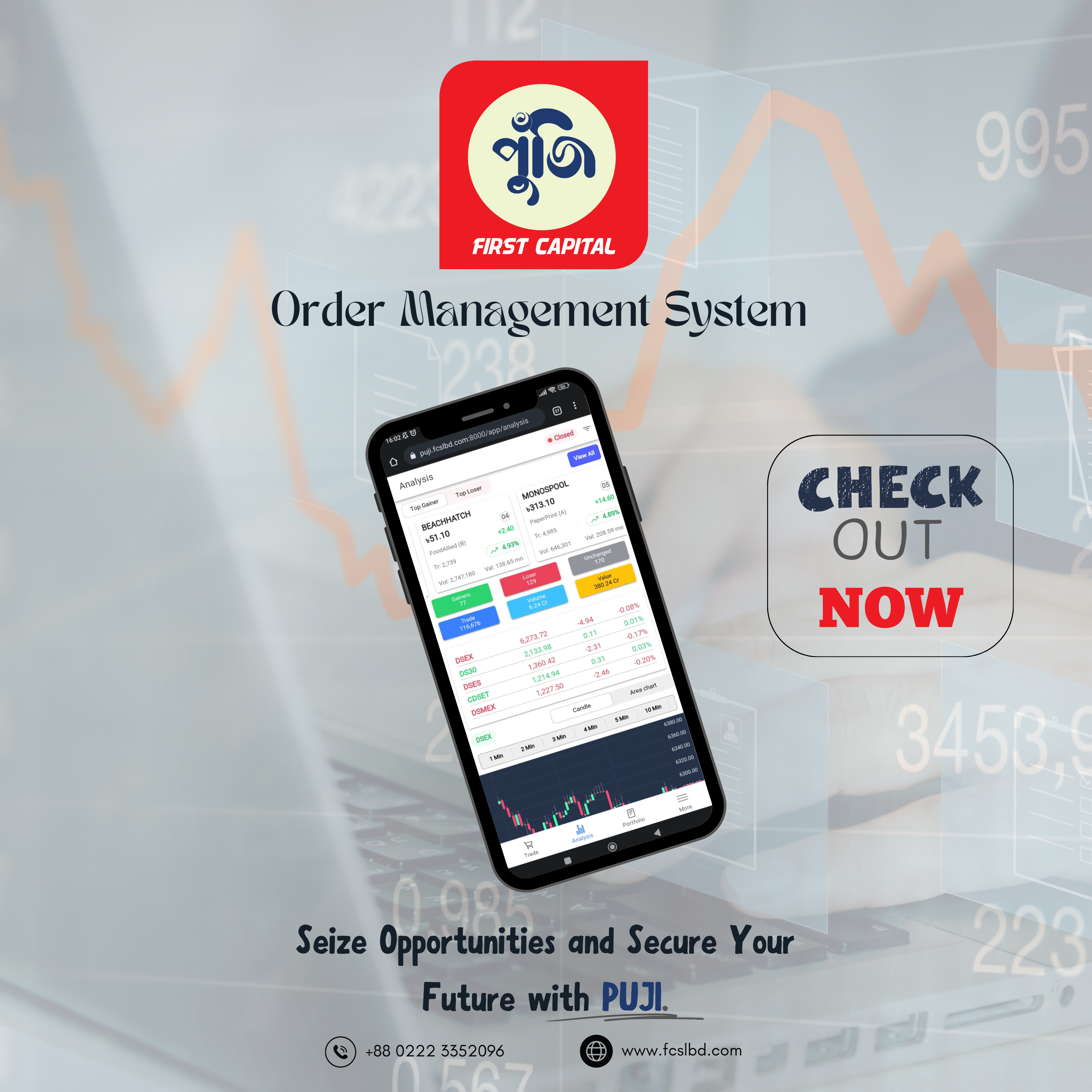Walton Hi-Tech Industries has been struggling to meet the regulatory requirement of offloading a minimum of 10% stake in the capital market, primarily due to the absence of available buyers.
Even after expressing the intention to sell shares, sponsor-directors of the electronic giant have been unable to complete the offloading process.
Since August 2022 to February this year, three directors have announced plans to sell around 6.75 lakh shares from their holdings, but they were only able to sell around 2.63 lakh shares, according to the company’s monthly shareholding reports.
Company Secretary Rafiqul Islam acknowledged the issues of a lack of buyers and the high value of shares, and blamed the floor price for not attracting buyers within the stipulated time.
“Now that the floor has been lifted, we are receiving interest from buyers, and gradually, the shares have been sold, which is reflected in the company’s shareholding reports,” he said, expressing optimism while speaking to The Business Standard over the phone.
Asked about the deadline set by the Bangladesh Securities and Exchange Commission (BSEC), which will expire next year, Rafiqul said, “Currently, our primary focus is on selling the shares in the public market. If this approach fails, we will explore alternative methods to ensure compliance.”
Walton went public in 2020 by offloading only 1% of its shares in the secondary market. In 2021, the BSEC took an initiative to increase the free-float shares in the secondary market with the aim of reducing manipulations.
Eventually, in September 2021, the commission directed Walton Hi-Tech Industries, along with the state-owned Investment Corporation of Bangladesh (ICB), and Berger Paints (Bangladesh), to ensure at least 10% free-floats.
Despite the regulator’s decision, the state-owned ICB has yet to increase its free-float in the public market. Currently, its free-float shares are 3.51%. Berger Paints Bangladesh is in the process of offloading more shares to raise its free-float shares up to 10%.
The multinational company has decided to offload shares through rights offers and has secured BSEC approval to raise funds through the issuance of right shares.
In May 2022, the BSEC allowed Walton three years to offload more stakes. In line with the regulator, at the end of August 2022, sponsor-directors started the offloading process by expressing sale declarations, according to securities rules.
To date, three sponsor-directors have expressed their intention to sell around 6.75 lakh shares from their holdings. In the last 18 months, SM Ashraful Alam, SM Mahbubul Alam, and SM Rezaul Alam were only able to sell 2.63 lakh shares.
So, around 60% of the shares declared by sponsor-directors remained unsold. To comply with the BSEC’s directive of increasing the free-float stake to at least 10%, the owners of Walton need to offload more than three crore shares in the public market.
As of now, general investors, including institutional investors, foreign investors, and the general public, hold 1.06% of the shares. Among them, general shareholders own 0.54% of the company’s shares.
Meanwhile, the local electronic and home appliance giant is the third most valuable company in the stock market, with a capitalisation of Tk20,838 crore, and its shares closed 4.67%, or Tk32.1, down at Tk655.80 each on Thursday.
Since the lifting of the floor price on 18 January, its share has been gradually declining – by 37% to Tk1,047.7 each.
Financial performance
Walton has reported a profit of Tk340 crore in the first half of the ongoing fiscal year, marking an impressive 23-fold year-on-year increase.
According to the financial statement, the company reported earnings per share (EPS) of Tk11.24, up from Tk0.47 a year ago.
However, its revenue fell by 8% to Tk2,368 crore, compared to Tk2,586 crore in the corresponding period last fiscal. In a price-sensitive statement, Walton highlighted that the finance cost during the period witnessed a significant decrease, attributed to the diminished impact of taka devaluation against foreign currencies, particularly the dollar.
The company elaborated that the operating profit margin for the first half of this fiscal demonstrated a notable increase, reaching 22.17%, compared to 18.71% in the corresponding period. Additionally, the finance cost percentage on sales during the July-December period saw a substantial decrease, plummeting from 18.15% in the same period a year ago to 7.51%. This favourable financial landscape, as outlined in the statement, played a pivotal role in enabling the company to achieve stellar growth in profit.
Nevertheless, the company faced foreign currency losses totalling Tk43 crore in the first half of this fiscal year, demonstrating a substantial reduction from Tk336 crore reported in the corresponding period. In September of the previous year, Walton disbursed a generous 300% cash dividend to its general shareholders for FY23, despite experiencing a 35% decline in profit. Notably, sponsors and directors received an impressive 90% cash dividend for the same fiscal period.
Currently, Walton is leading the refrigerator market with more than 72% of the market share. Besides, the company is performing well in the televisions, air conditioners, ceiling fans, LED lights, and home appliances sectors as well. Walton began exporting refrigerators in 2011 and also exports various electronic products, including refrigerators, mobile phones, compressors, and televisions, to European, Asian, and African countries.
Source: tbsnews




